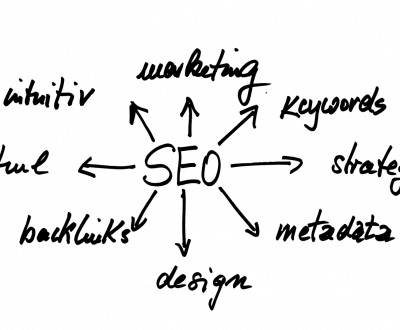Introduction
In the fast-paced world of online advertising, Pay-Per-Click (PPC) campaigns are a vital tool for businesses looking to drive traffic and generate conversions. Google AdWords, now known as Google Ads, is one of the most popular PPC platforms. However, high costs can be a significant concern. In this guide, we’ll explore effective strategies to reduce your AdWords PPC expenses while maintaining or even improving your results.
Understanding AdWords PPC
Before diving into cost-reduction strategies, it’s crucial to understand AdWords PPC. Google Ads allows advertisers to bid on specific keywords to display their ads at the top of search results. Advertisers pay a fee each time a user clicks on their ad, hence the term “Pay-Per-Click.” The cost per click (CPC) can vary significantly based on factors like keyword competition, ad quality, and landing page relevance.
The Importance of Reducing PPC Costs
Reducing PPC costs is essential for several reasons:
- Cost Efficiency: Lower costs mean a higher return on investment (ROI).
- Increased Profitability: A leaner budget allows you to allocate resources to other marketing initiatives.
- Sustainable Campaigns: Lower costs can make your campaigns more sustainable in the long run.
- Improved Competitiveness: Lower CPC can help you outbid competitors for top positions.
- Better Quality Leads: Focusing on cost reduction often leads to improved targeting and higher-quality leads.
Strategies to Lower AdWords PPC Costs
Keyword Optimisation
Effective keyword selection and optimization are fundamental. Use tools like Google’s Keyword Planner to identify low-competition, high-relevance keywords. Regularly update your keyword list and eliminate underperforming ones.
Quality Score Improvement
Quality Score is Google’s measure of ad quality and relevance. A higher Quality Score can lead to lower CPC. Focus on improving ad copy, keyword relevance, and landing page experience.
Ad Copy Refinement
Well-crafted ad copy can increase click-through rates and Quality Score. A/B testing different ad variations can help identify what resonates best with your audience.
Landing Page Optimisation
Sending users to a relevant and well-optimized landing page can improve Quality Score and user experience. Ensure fast loading times, clear call-to-action, and mobile-friendliness.
Negative Keywords
Utilize negative keywords to filter out irrelevant traffic. This can prevent your ads from showing to users who are unlikely to convert, thus saving your budget.
Bidding Strategies
Explore different bidding strategies like manual CPC, automated bidding, and target CPA to find the most cost-effective approach for your campaigns.
Ad Extensions
Use ad extensions like sitelinks, callouts, and structured snippets to enhance your ad’s visibility and relevance. This can result in more clicks at the same cost.
Measuring Success
Track the success of your cost-reduction efforts using key metrics like CPC, Quality Score, click-through rate, and conversion rate. Regular monitoring and adjustment are crucial for long-term success.
E-commerce SEO Services for UK Retailers
Frequently Asked Questions (FAQ)
What is AdWords PPC?
Google Ads, formerly AdWords, is an advertising platform where businesses bid on keywords to display their ads in Google search results. Advertisers pay each time a user clicks on their ad.
Why should I reduce my PPC costs?
Lowering PPC costs can improve profitability, competitiveness, and lead quality while optimizing your budget.
How can I optimize keywords for cost reduction?
Use keyword research tools to find low-competition, high-relevance keywords. Regularly update and refine your keyword list.
What is Quality Score, and why does it matter?
Quality Score is Google’s measure of ad quality and relevance. A higher Quality Score can lead to lower CPC, making your campaigns more cost-effective.
What are negative keywords, and how do I use them?
Negative keywords are terms that prevent your ads from showing for irrelevant searches. Use them to filter out unwanted traffic and save budget.
What are the different bidding strategies?
Bidding strategies in Google Ads include manual CPC, automated bidding, and target CPA. Each has its benefits and can be used to reduce costs.
How can ad extensions help reduce PPC costs?
Ad extensions enhance your ad’s visibility and relevance, potentially increasing clicks without increasing your budget.
Conclusion
Reducing your AdWords PPC costs is a strategic approach that can lead to better results and a more efficient use of your advertising budget. By optimizing keywords, improving ad quality, and leveraging various features offered by Google Ads, you can achieve a more cost-effective and successful PPC campaign.
About us and this blog
We are a digital marketing company with a focus on helping our customers achieve great results across several key areas.
Request a free quote
We offer professional SEO services that help websites increase their organic search score drastically in order to compete for the highest rankings even when it comes to highly competitive keywords.
We offer a FREE Website Audit. No Charge, No Catch, simply add your website, the email address to send report. We will send you a website audit report highlighting any website issues, broken links, alt tags missing, duplicate titles etc along with a Google Analysis of your content.
Recent Posts
All Website Tags
- Advanced SEO Analytics
- AI and Machine Learning in SEO
- Algorithm Updates and SEO
- Algorithm Updates and SEO News
- Alt Text (Alternative Text)
- Analytics and Insights
- Anchor Text
- Audit
- Backlink Monitoring and Management
- Backlinks
- Black Hat SEO
- Brand Awareness
- Canonical URLs
- Content Creation Chronicles
- Content Marketing
- Content Marketing Corner
- Content Marketing for SEO
- copywriting
- CTR (Click-Through Rate)
- Digital Authority
- Digital Diagnostic
- Digital Diagnostic for SEO
- Digital Health Assessment
- Digital Marketing Trends
- Domain Authority DA
- Duplication
- E-Commerce SEO
- Email Marketing Mastery
- External Linking
- Google Core Update
- Google My Business GMB
- Heading Tags (H1, H2, H3, etc)
- Healthcare SEO Strategies
- Indexing
- Internal Linking
- Internal Linking Strategies
- International SEO Strategies
- Keyword Analysis and Optimisation
- Keyword Research and Analysis
- Keywords
- Link Building
- Link Building for SEO
- Link Building Strategies
- Link Building Techniques
- Link Building Tools and Tips
- Local SEO Spotlight
- Local SEO Strategies
- Market Research
- Marketing
- Marketing Mix
- Meta Tags (Title, Description)
- Mobile SEO
- Off-Page Optimisation
- Off-Page SEO
- On-page SEO
- Online Audit Insights
- Online Audit Insights for SEO
- Optimise Your SEO
- Optimise Your Website
- Organic Traffic
- Page Authority
- Page Load Speed
- Paid Search (PPC)
- Ranking
- Reputation Management and Online Branding
- Search Engine Optimising Service
- Search Ranking Analysis
- SEO
- SEO Analytics and Reporting
- SEO Diagnostic Lab
- SEO Evaluation Toolkit
- SEO for Beauty
- SEO for Blogs and Content Platforms
- SEO for Hair Salons
- SEO for Spas
- SEO for Startups
- SEO for WordPress Websites
- SEO Health Assessment
- SEO Health Check
- SEO Performance Checkup
- SEO Success Secrets
- SERP
- Site Performance Analysis
- Social Media Integration for SEO
- Social Media Strategies Unveiled
- Target Audience
- Technical SEO
- Technical SEO Demystified
- Video SEO for YouTube
- Web Presence Checkup
- Website Health Check
- White Hat SEO









